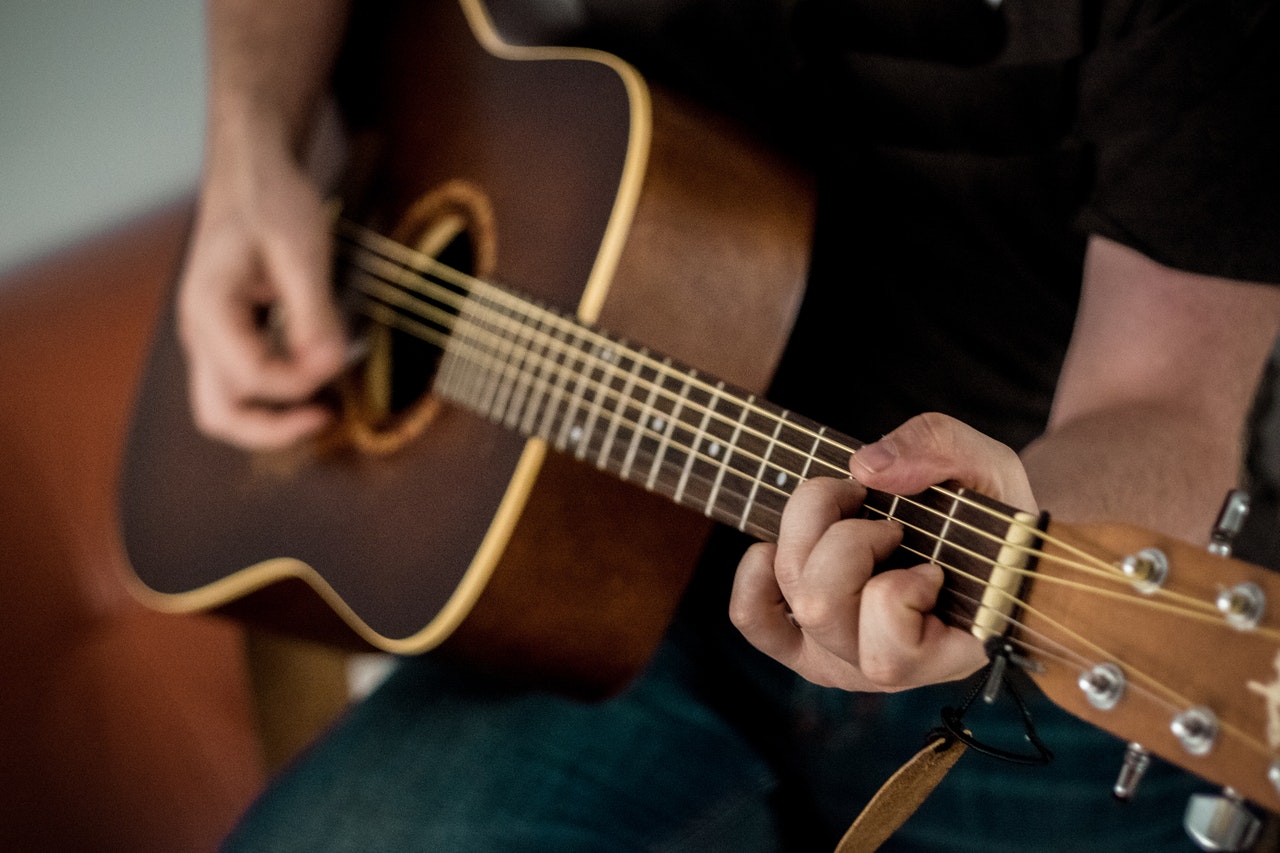Mastering the Acoustic Guitar
Share

The acoustic guitar has a timeless appeal and remains one of the most popular instruments across various genres of music. Whether you’re a beginner or an experienced musician, learning to play the acoustic guitar can be a rewarding and fulfilling journey. In this article, we’ll explore the world of acoustic guitar lessons and provide some valuable insights to help you on your path to mastery.
Getting Started:
Before diving into guitar lessons, it’s essential to have a good understanding of the instrument itself. The acoustic guitar typically features a hollow body, which produces sound through the vibration of the strings. It doesn’t require amplification like an electric guitar, making it a convenient choice for beginners and those who prefer a more organic sound.
Choosing the Right Guitar:
When starting your acoustic guitar journey, selecting the right instrument is crucial. Consider factors such as body size, tone, wood, and playability. It’s always recommended to try out different guitars in person to find one that feels comfortable in your hands and produces a sound you love. Seek advice from experienced guitarists or visit a local music store to explore your options.
Basic Techniques:
Learning the fundamental techniques is the first step in your guitar lessons. These techniques include fretting, strumming, and picking. Fretting involves pressing down on the strings against the frets to produce different notes and chords. Strumming refers to sweeping your hand across the strings to create rhythm and harmony, while picking involves using individual fingers or a pick to pluck the strings with precision.
Chords and Progressions:
Chords are the building blocks of music, and understanding them is essential for any guitarist. Begin with simple open chords such as C, D, G, and E minor. Practice transitioning between chords smoothly and accurately. As you progress, you can explore more complex chords and chord progressions, which will expand your musical vocabulary and allow you to play a wide range of songs.
Melodies and Riffs:
Once you have a good grasp of chords, you can start learning melodies and riffs. Melodies are single-note lines played on the guitar, while riffs are repetitive, catchy musical phrases. Familiarize yourself with popular melodies and riffs from different genres, and practice playing them accurately and with expression. This will help improve your finger dexterity and musicality.
Fingerstyle Techniques:
Fingerstyle playing is a versatile technique that allows you to play melody, harmony, and bass lines simultaneously on the guitar. It involves plucking the strings using your fingers rather than a pick. Fingerstyle playing opens up a world of possibilities and is commonly used in folk, classical, and acoustic guitar arrangements. Dedicate time to learning fingerstyle patterns and exercises to enhance your playing abilities.
Music Theory:
While not mandatory, having a basic understanding of music theory can greatly benefit your guitar playing. Learning about scales, intervals, chord progressions, and music notation can help you analyze songs, improvise, and compose your own music. It’s recommended to study music theory alongside your guitar lessons to deepen your understanding of the instrument and the language of music.
Practice and Patience:
Learning the acoustic guitar requires dedication and regular practice. Set aside specific times each day to practice and stick to a routine. Consistency is key, even if you can only spare a few minutes a day. Gradually increase the duration and complexity of your practice sessions as you progress. Remember that progress takes time, so be patient with yourself and enjoy the journey.
Additional Resources:
In addition to formal guitar lessons, there are various resources available to assist you on your guitar-playing journey. Online tutorials, instructional books, and interactive apps can provide valuable guidance and supplement your learning. Joining online communities or forums where you can connect with other guitar enthusiasts can also be beneficial for sharing tips, seeking advice, and finding inspiration.
Finding a mentor or instructor who specializes in acoustic guitar can be a valuable asset. They can provide personalized guidance, offer feedback, and help you overcome any obstacles you may encounter. Many instructors offer private lessons, either in person or through online platforms, allowing you to receive one-on-one instruction tailored to your specific needs.
Another helpful resource is online platforms that offer a wide range of guitar lessons and tutorials. Websites and apps provide structured courses, video lessons, and interactive exercises, allowing you to learn at your own pace and convenience. Take advantage of these platforms to access a wealth of knowledge and learn from experienced guitarists.
Listening to and analyzing music is an essential aspect of learning any instrument. Explore different genres and styles of acoustic guitar music, and pay attention to the techniques, chord progressions, and melodies used. Try to replicate and emulate the sounds you hear, as this will develop your ear and improve your ability to play by ear.
Joining a local jam session or finding fellow musicians to play with can greatly enhance your guitar skills. Collaborating with others not only builds your confidence but also exposes you to different playing styles and musical ideas. It’s a great way to learn from each other, exchange tips, and have fun making music together.
Remember that learning the acoustic guitar is a lifelong journey. Even the most experienced guitarists continue to explore new techniques, genres, and musical ideas. Embrace the process of continuous learning and experimentation, and never be afraid to challenge yourself.
Mastering the acoustic guitar is a fulfilling endeavor that requires dedication, practice, and patience. Start by familiarizing yourself with the instrument, learning basic techniques, and gradually progressing to more advanced skills such as fingerstyle playing and music theory. Utilize various resources, seek guidance from mentors, and immerse yourself in the world of guitar music. Enjoy the process, stay persistent, and let the magic of the acoustic guitar guide you on your musical journey.










